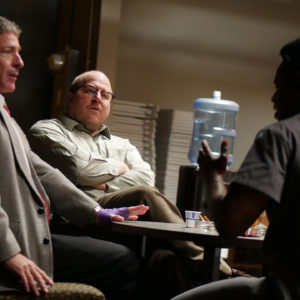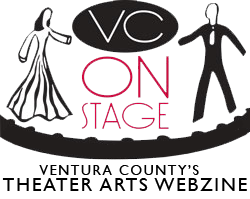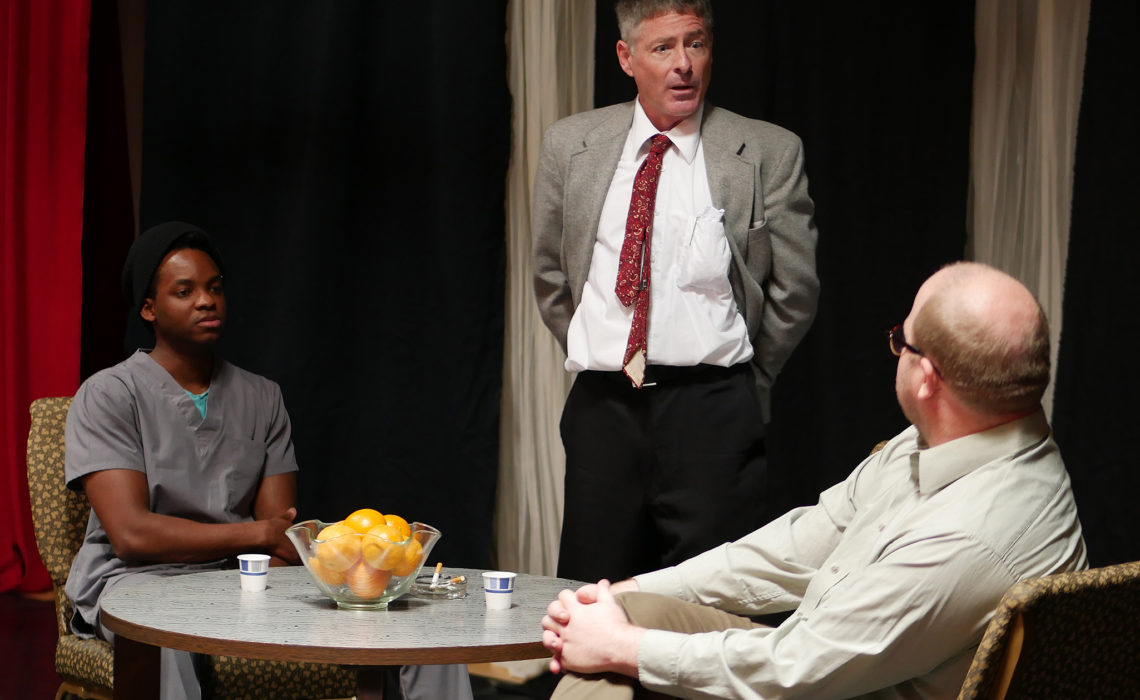In British playwright Joe Penhall’s Blue/Orange, Christopher is a patient in a London psychiatric hospital who has been admitted under a “Section 2” for what has been diagnosed as a “borderline personality disorder.” A Section 2 is a directive allowing for analysis for 28 days, after which a final determination is to be decided upon to indicate whether a patient should be indefinitely detained under the Mental Health Act. Christopher’s psychiatrist, Bruce Flaherty, believes Christopher to be a paranoid schizophrenic, his condition lying somewhere between neurotic and psychotic, and should be kept under observation for further study, but Robert Smith, the hospital’s “senior consultant,” wants Christopher released for strictly bureaucratic reasons.
This sets up a trialogue in a play whose motivation is conflict – both internal and external – between the three characters, setting up an emotional climax that causes the audience to wonder whether all three need to be committed. The play, which is directed by Tom Eubanks, is being staged by the new Beacon Theater Company at the NAMBA Performing Arts Space in downtown Ventura through July 28.
Brian Robert Harris plays Bruce, a role that is custom-made for Harris’ knack for playing emotionally volatile characters. Bruce doesn’t start out that way. Initially, he appears to be calm, analytical, and empathetic towards his patient, but when Robert, played by Brian Kolb, enters and urges Bruce to discharge Christopher, things begin to get heated, and soon, the conflict is between the two doctors, especially when Christopher shocks them by claiming he is an illegitimate son of Ugandan dictator Idi Amin.
Like Christopher’s condition, Penhall’s play is itself schizophrenic, balancing between drama and satire. Things take a turn for the strange when Christopher is handed an orange and tells Bruce that it is bright blue, leading him to conclude that Christopher is having issues perceiving reality. But Robert disagrees, stating “Technically, he’s not that mentally ill,” which Bruce views as an absurd notion. They begin having a discussion about what is normal and soon, Bruce is revealed to be the schizophrenic one in the explosive final scene.
We would side with Bruce if Christopher wasn’t so likable and believable in his presumed delusion. In Emmanuel Odaibo’s excellent portrayal, Christopher relates how he is terrified of the skinheads who mercilessly taunt him in his London neighborhood, but none of this fazes Robert, who sticks to his pragmatic view that Christopher should be released, accusing Bruce of “ethnocentric bias,” insisting that Bruce wishes to “punish” Christopher because he is black. By the end of the play, one of the characters’ futures remains in doubt, but it’s not who you think it is.

Performed on an empty stage with only a table, three chairs, and a bowl of oranges as props, the play forces the audience to concentrate on the characterizations. Harris, Odaibo, and Kolb are excellent in their portrayals and use the tempo and rhythm of their dialog to instigate an almost musical suite of conflict, rising and falling in intensity, ultimately reaching a frenzied crescendo in the final scene.
In the end, despite the overriding theme of prejudice, it’s the imperfect world of psychiatry that takes a beating in Blue/Orange, giving rise to the question: How much of who we are is influenced by our environment and our upbringing, and can it intrude on our ability to objectively characterize the behavior of another? These and other questions brought up in this intriguing play will have you pondering your own behavior and biases as you make your way home.
A word of caution – herbal cigarettes are used during the performance, so those who object to smoke should be forewarned.
********************
Blue/Orange plays at NAMBA Performing Arts Space, 47 S. Oak St. in Ventura, through July 28.






No Comments